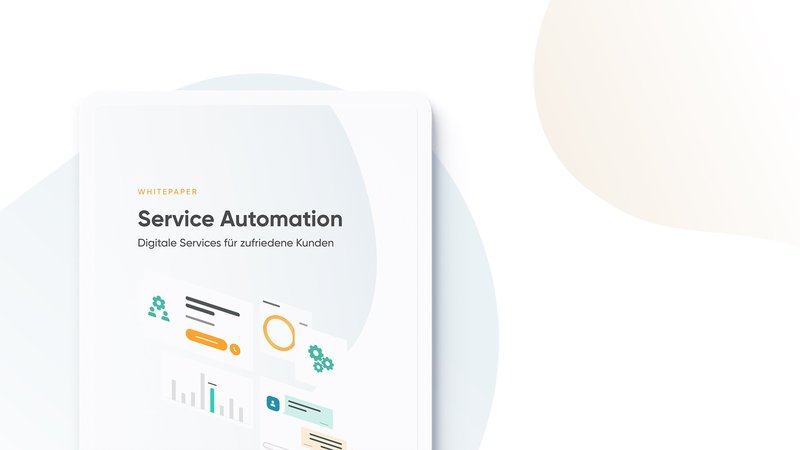Buy online and pick up in store: How service automation makes your customers happy
Service automation turns complex interactions between brand and customer into inspiring experiences in every phase. BSI CX and BSI CRM support retailers with AI applications for top-notch customer service.
Examples like Click & Collect and Click & Meet make the benefits for customers and companies obvious: While ordering online and picking up in store translates to high levels of convenience and personal support for the customer, upsell opportunities present themselves and strong customer loyalty is cultivated for the retailer’s benefit.
Key points
- Click & Collect and Click & Meet link the online communication with the in-store service;
- Service automation helps make the buying process run smoothly – from ordering and pickup to complaint management;
- With AI-based tools, BSI CX and BSI CRM provide standout support to retailers.
According to a study, almost 40% of the respondents in Germany used Click & Collect services (Statista, 2021). This clearly indicates that unique opportunities are emerging in the retail industry. In this use case, find out which functions BSI CX and BSI CRM use to support your success during the individual phases.

White paper: Digital services ensure happier customers – thanks to service automation
Any company investing in service automation benefits directly in multiple ways: Service employees can focus on the essential tasks, and customers are impressed and remain loyal. Create the foundation for this – our white paper explains how to do it.
How Click & Collect and Click & Meet work in the real world
Click & Meet and Click & Collect connect online interactions and personal interactions in the store into a homogeneous experience. Key factors include the seamless transition between the individual phases and the smooth switch between communication channels.
Phase 1: Order
Your customer orders a pair of athletic shoes in your webshop and has the Click & Collect option right there in the order. This option appeals to your customer because it is the quickest way for him to get the product. At the same time, he can also get personal advice from an expert and have a running gait analysis done right away.
Phase 2: Product receipt and pick-up date
Once the ordered product arrives at the store, an employee there scans it in, which triggers the next phase in the process. The customer automatically receives word via WhatsApp and e-mail that he can pick up his order any time. The message also includes the link to the appointment tool. Sitting right at his desk, the customer uses his smartphone to select a pick-up time in the afternoon.
Phase 3: Appointment preparation
Your team, too, receives the automatic message about the arranged pick-up date and time. You can even adjust your personnel schedule instantly to the appointment assignment to ensure that a service employee will be available for the appointment. This service employee has all the information available, can set up the space for the customer and prepare the running gait analysis right then with the pertinent customer information such as height or weight.
Phase 4: Communication and coordination
Let's assume that your customer is called away to a business appointment on short notice. He calls one of your stores and leaves a voicemail message with a new appointment request. An employee listens to it and can immediately reschedule the appointment. The service employee receives the new appointment information as well.
Phase 5: In-store appointment
Finally, the customer comes to the store. He has his running gait analyzed and chats with the salesperson over something to drink while the results are being evaluated. The salesperson also recommends the latest running shirt collection to him. The customer is excited about it and buys a shirt in addition to the running shoes. When he is done at the store, he leaves with a very positive feeling thanks to this all-around successful experience, which he is then happy to share with others.
Phase 6: Follow-up and retention
Your marketing efforts will now automatically enter the retention phase. You will want to continue to provide your customer with added value on suitable occasions. The first activity might be a voucher for the discounted service after the first ski season, which will give you the opportunity to further increase your customer’s delight.
Powerful tools for automated customer journeys
The Click & Collect process pulls together several occurrences where service automation can play a crucial role in the customer experience. Two aspects of it deserve special attention:
1. Choice of communication channels
Your customers use many channels in parallel, and you don't want to prevent them from using this approach but support them instead. If you have an omnichannel strategy, you will establish a consistent presence across all available channels. With the integrated CDP, all information is up-to-date and available to all teams and systems at all times, which ensures that your customer never has to communicate his request twice.
2. Service issues and complaint e-mails
Complaint management is a fundamental part of customer service. 50 percent of customers do not go back after a negative service experience (Helpscout, 2020). This means that swift and effective responses are essential. With AI support, BSI CX pre-sorts inbound messages, assigns high priority to volatile issues and even detects the emotional tinge of the message. This allows you to reply to a disgruntled core customer's e-mail quickly and transform displeasure into delight.
Conclusion
Service automation increases your efficiency and provides you with extensive tools to delight your customers. Processes such as Click & Meet and Click & Collect become a holistic and top-notch experience when suitable technology in the background ensures that the communication is seamless. BSI CX and BSI CRM help retailers implement these processes easily and effectively. Let’s discuss it!
Share post
Next Best Action: BSI
The next best action: Network your goals with BSI.
